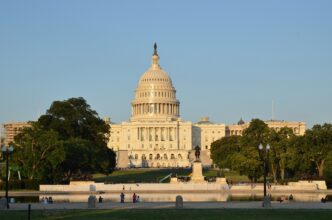Starting Wednesday, several new laws passed during the recent Florida legislative session will come into effect, including a controversial measure restricting social media access for children.
Among the 299 bills approved by Florida’s Legislature and Governor Ron DeSantis, the most notable is House Bill 3 (HB 3), which targets the social media usage of minors. This legislative effort, spearheaded by former House Speaker Paul Renner, intends to curb the potential harm social media platforms pose to children under 16. Although parents can consent for 14- and 15-year-olds, those under 14 are strictly prohibited from creating accounts.
Renner argued that these platforms not only harm mental health but also increase the risk of minors encountering predators. The bill, now a state law, implies legal consequences for non-compliant social media companies, including potential fines and lawsuits in Florida. The enforcement of this law, however, is currently delayed due to a federal lawsuit challenging its constitutionality. Filed by tech industry groups, the lawsuit defends parental rights to monitor their children’s online interactions and seeks a preliminary injunction to halt the law’s implementation. A hearing is scheduled for February 28.
Another aspect of HB 3 involves mandatory age verification for accessing adult content online, a requirement already impacting platforms like Pornhub, which has restricted access for Florida users in anticipation of the law’s enforcement.
Other laws taking effect include HB 135, which aims to protect voter registration integrity by preventing unauthorized changes to party affiliations. Meanwhile, HB 267 imposes timelines on local governments for building application decisions and updates building codes related to structural replacements.
The ‘Halo Law’ (SB 184) also begins, establishing penalties for individuals approaching first responders after being warned. This law has sparked debate, with supporters highlighting increased protection for law enforcement, while critics fear it could hinder First Amendment rights.
Additionally, SB 362, SB 556, and SB 892 introduce changes to medical reimbursement rates, protections against financial exploitation, and new regulations for dental insurance claims, respectively.
Finally, SB 7054 revises the management of private activity bonds to enhance public benefit projects, optimizing bond use and extending provisions for unallocated volume cap.
These legislative changes reflect Florida’s diverse policy priorities, from safeguarding minors online to refining public sector operations. As these laws unfold, they will likely prompt continued legal and social discourse.
Source: Nbcmiami








